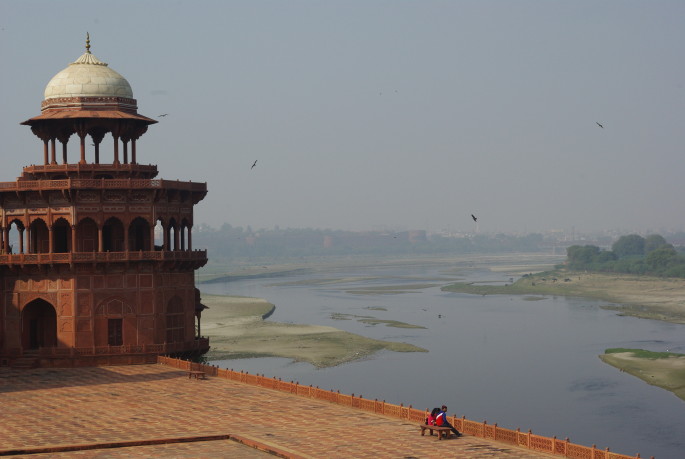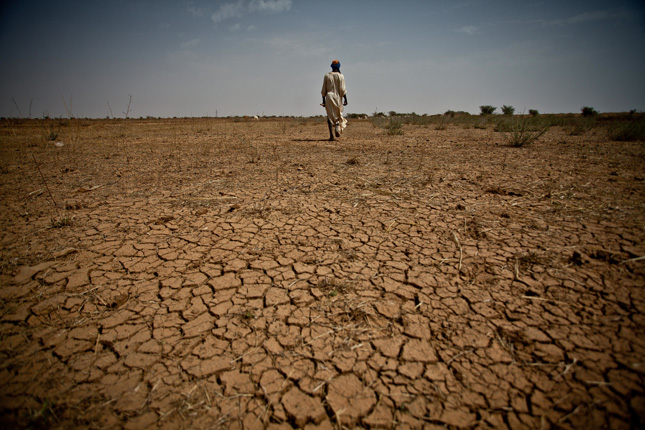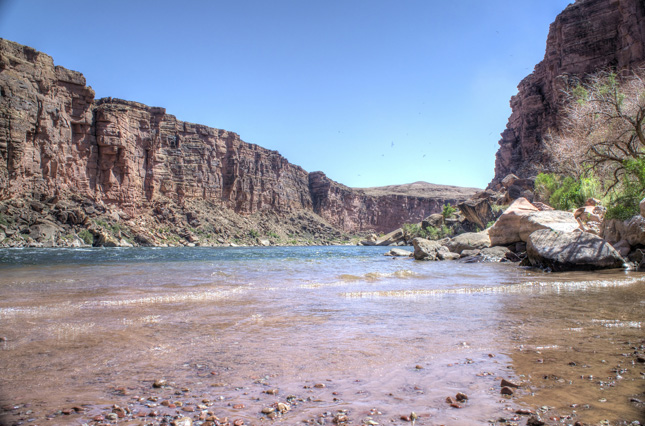-
A Firm Foundation: Contraception, Agency, and Women’s Economic Empowerment
› According to a raft of experts, empowering women to be economic actors would change quite a bit. The UN Secretary General set up a High-Level Panel on it; Melinda Gates keeps talking about it; and the World Bank and Ivanka Trump recently launched an initiative to unlock billions in financing for it. Targets related to women’s economic empowerment cut across multiple Sustainable Development Goals, including advancing equal rights to economic resources, doubling the agricultural productivity and incomes of women who are small-scale farmers, and achieving full and productive employment and decent work for all women.
According to a raft of experts, empowering women to be economic actors would change quite a bit. The UN Secretary General set up a High-Level Panel on it; Melinda Gates keeps talking about it; and the World Bank and Ivanka Trump recently launched an initiative to unlock billions in financing for it. Targets related to women’s economic empowerment cut across multiple Sustainable Development Goals, including advancing equal rights to economic resources, doubling the agricultural productivity and incomes of women who are small-scale farmers, and achieving full and productive employment and decent work for all women. -
This Indian Women’s Union Invented a Flexible Childcare Model
› In 1971, the wives of textile workers in Ahmedabad, western India, became the main earners in their families overnight, after several large textile mills closed down. They were part of the 94 percent of India’s female labor force working in the informal sector—recycling waste, embroidering fabric, and selling vegetables—and thus they remained largely invisible to the government and to formal labor unions. In response, Ela Bhatt, a young lawyer, met with 100 of the women in a public park to establish the Self-Employed Women’s Association (SEWA), which would later register as a trade union and swell to the two million members it boasts today.
In 1971, the wives of textile workers in Ahmedabad, western India, became the main earners in their families overnight, after several large textile mills closed down. They were part of the 94 percent of India’s female labor force working in the informal sector—recycling waste, embroidering fabric, and selling vegetables—and thus they remained largely invisible to the government and to formal labor unions. In response, Ela Bhatt, a young lawyer, met with 100 of the women in a public park to establish the Self-Employed Women’s Association (SEWA), which would later register as a trade union and swell to the two million members it boasts today. -
Engineering the Climate—or Deploying Disaster? Applying Just War Theory to Geoengineering
›
As the national security ramifications of climate change grow more pronounced, climate manipulation technologies, known as geoengineering, will become more attractive as a method of staving off climate-related security emergencies. However, geoengineering technologies could disrupt the global ecological status quo, and could pose a potentially coercive (and very serious) threat to peace. Is it possible to obtain the potential benefits of these game-changing technologies, while avoiding spurring violence and conflict? In a recent article in Strategic Studies Quarterly, we argue that just war theory—which defines the concepts of “right” and “wrong” in warfare—could provide ethical standards for security decision-makers as they consider whether or how geoengineering should be used to address the climate challenge.
-
How Family Planning Can Help Save Cheetahs
›
Conservationists and development practitioners may not have always seen eye to eye, but a new partnership between a cheetah conservation charity and a network of reproductive health NGOs is making the case for why these groups need to work more closely together.
-
Granting Rivers Legal Rights: Is International Law Ready for Rights-Centered Environmental Protection?
›
Last year, four rivers were granted legal rights: the Whanganui in New Zealand, Rio Atrato in Colombia, and the Ganga and Yamuna rivers in India. These four cases present powerful examples of the increasing relevance of rights-centered environmental protection. Like corporations, which have legal rights in many jurisdictions, these rivers are rights-bearing entities whose rights can be enforced by local communities and individuals in court. But unlike corporations, these rights are not yet recognized in international treaties. Which raises the question: what are the implications of rights for nature for international environmental law?
-
How to Advance the Monitoring of Climate Risk Insurance
›
One of the most recent and promising tools to cope with the consequences of the rising number of disasters is climate risk insurance. In exchange for an annual premium, they quickly provide states and other actors (including individuals) with much-needed cash to cope with the impacts of natural hazards such as hurricanes, droughts, and floods. Within certain parameters, policyholders are largely free to determine how they want to use the payouts. The African Risk Capacity (ARC), the Caribbean Risk Insurance Facility (CCRIF), and the Pacific Catastrophe Risk Insurance Facility (PCRAFI Facility) serve as cases in point. To date, they have made 44 payouts to 19 countries totaling about US$ 173 million. Simply put: they work.
-
Weakened by the Storm: Disasters and the Fighting Capacity of Armed Groups in the Philippines
›Many studies on natural disasters and conflict have assumed that disasters make it easier for rebel groups to recruit new members by fueling grievances against the government and lowering the opportunity costs of joining an insurgency, and that this recruitment will increase conflict. But disasters may actually have the opposite effect. My study of rebel groups in the Philippines, recently published in the Journal of Peace Research, suggests that by weakening the organizational structure and supply lines of rebel groups and their ability to enlist new fighters, disasters may instead reduce the intensity of the conflict, rather than increase it.
-
The Water Wars Within: Preventing Subnational Water Conflicts
›
In 1995, World Bank official Ismail Serageldin warned that “the wars of the next century will be fought over water—unless we change our approach to managing this precious and vital resource.” Since then, the world’s water resources have come under ever-greater strain. At the same time, institutional frameworks for managing water resources remain weak throughout most of the globe. Only about a quarter of the world’s international river basins have adequate governance arrangements to prevent and resolve conflicts. Does this mean that we can expect the 21st century to be wracked by water wars?
Showing posts from category Guest Contributor.


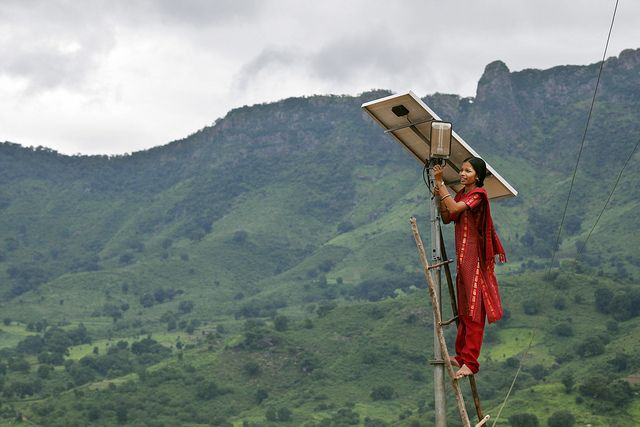 According to a raft of experts, empowering women to be economic actors would change quite a bit. The UN Secretary General set up a
According to a raft of experts, empowering women to be economic actors would change quite a bit. The UN Secretary General set up a 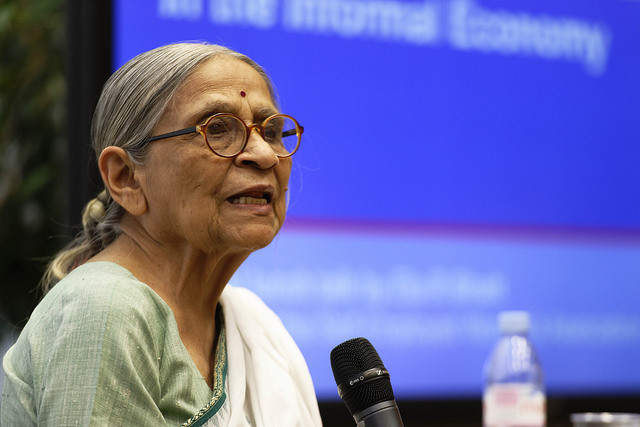 In 1971, the wives of textile workers in Ahmedabad, western India, became the main earners in their families overnight, after several large textile mills closed down. They were part of the 94 percent of India’s female labor force working in the informal sector—recycling waste, embroidering fabric, and selling vegetables—and thus they remained largely invisible to the government and to formal labor unions. In response, Ela Bhatt, a young lawyer, met with 100 of the women in a public park to establish the Self-Employed Women’s Association (SEWA), which would later register as a trade union and swell to the two million members it boasts today.
In 1971, the wives of textile workers in Ahmedabad, western India, became the main earners in their families overnight, after several large textile mills closed down. They were part of the 94 percent of India’s female labor force working in the informal sector—recycling waste, embroidering fabric, and selling vegetables—and thus they remained largely invisible to the government and to formal labor unions. In response, Ela Bhatt, a young lawyer, met with 100 of the women in a public park to establish the Self-Employed Women’s Association (SEWA), which would later register as a trade union and swell to the two million members it boasts today.
